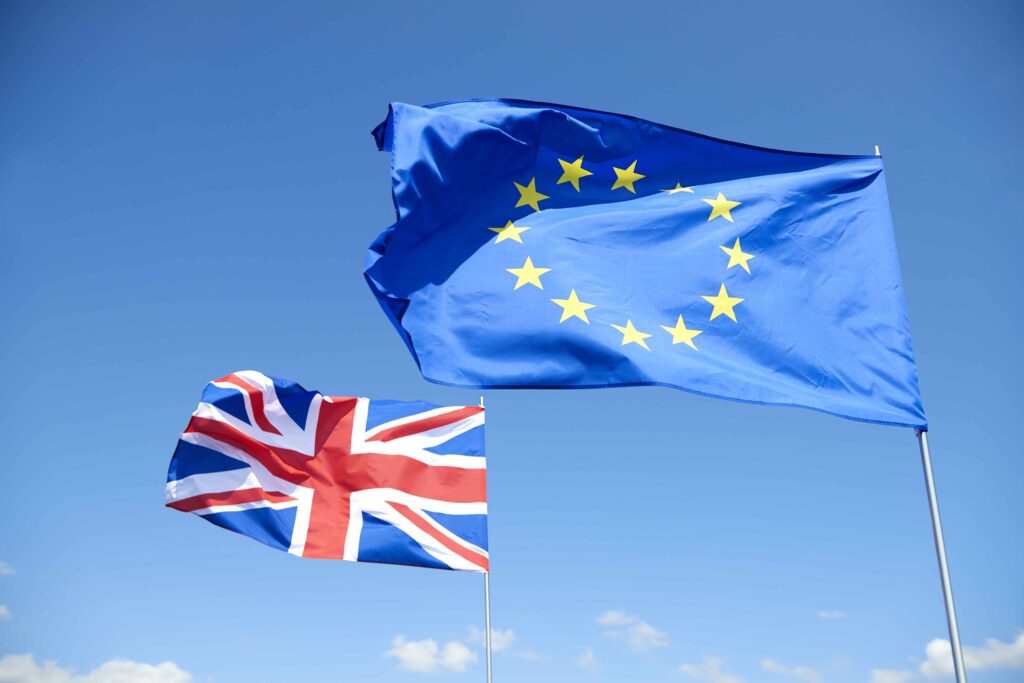Impact of Brexit on the UK and EU: Best Guide Syrixo.com On June 23, 2016, the United Kingdom famously known as Brexit voted to leave the European Union through a referendum. The decision came to be and defined the new era in the economic and political relation between the United Kingdom and the European Union. Brexit is a very pertinent subject in the current global economic environment and this article is an ideal reference since it educates concerning the effects, difficulties, prospects for organization, business, consulting, trading, financing, and growth for the UK as well as the EU.
Brexit Background
The EU membership of the UK had been an issue of discussion for many years both in parliament and in business circles; On the one hand, the advocates of membership seen abundance of opportunities such as access to a large market and tremendous investment prospects while on the other hand, critics saw loss of sovereignty and regulatory nightmares. Brexit referendum happened with 51.9% in Favour of leaving the EU, which set off article 50 of the Treaty on European Union to start two years of withdrawal negotiations from the UK.
Short-Term Economic Impacts of Brexit
In the immediate aftermath of the referendum, the UK’s economy experienced significant volatility:
- Currency Fluctuations: The British pound Sterling (GBP) hit its 31-year low against green back (USD) and has declined more than 10 percent.
- Stock Market Turmoil: The FTSE 100 index fell by 8% the day of the referendum, while the FTSE 250 index, mainly of domestic firms, fell by 14%.
- Economic Slowdown: The economy of the United Kingdom has also been tested, with GDP growth rates now reduced to 2.2 % in 2015, 1.4% in 2017.

Economic Consequences on the Long Term for the UK
The UK’s economic landscape has undergone significant changes since Brexit:
- Trade and Investment: Brexit that involved the UK’s exit from the EU’s single market sin and customs union lengthened the barriers of trade as well as the exports and foreign direct investments.
- Regulatory Divergence: It said that the freedom of the UK to independently regulate potentially results in differences in standards totally the EU ones, which may cause non-tariff trading barriers.
- Immigration and Labor Market: Recent modifications of policies regulating free movement have impacted the availability and the distribution of workforce in Great Britain with reference to particular kinds of employees needed in healthcare and agriculture.
- Regional Disparities: Brexit has negatively raised competition and reduced trade and investment in regions that were initially dependent on EU relations.
Economic Consequences on EU for the Long-Term
The EU has also faced significant economic implications:
- Loss of UK Contributions: Brexit has left the EU poorer, reducing the overall contributions to the funding of programs and projects within that common European union.
- Trade Disruptions: The relations of the EU in trading have been broken with the UK in terms of exports and supply chain have been impacted.
- Financial Stability: The EU’s financial position has perhaps been challenged especially in the euro-area as a result of credit risk that emanates from uncertain UK financial markets.
- Cohesion and Unity: Brexit has thus caused doubt on the lines of solidarity and hence unity of EU because such action might inspire similar movements in other nation states.

Sectoral Impacts
Various sectors have been affected differently by Brexit:
- Financial Services: In particular, it has implemented and discussed various challenges, such as loss of passporting rights and access to the European Union markets for UK financial sector.
- Automotive Industry: The UK automotive industry is currently threatened by trade distortions, supply chain logistics, and possible tariffs.
- Agriculture and Food: Precisely, UK agriculture and food have concerns in trade proposals, subsidy policies, and labor availability in coming years.
- Pharmaceuticals and Healthcare: The industry has been subjected to regulatory risks or implications, risks of disruption of supply and research funding risks in the UK.
- China’s Economic Effects for Global Trade 2024.
Opportunities and Challenges
Brexit presents both opportunities and challenges:
Opportunities:
- Regulatory Freedom: The UK can have its favorable regulations possibly making industries more competitive.
- Independent Trade Policy: The UK, today, is also free to negotiate trade deals, indeed seeking out new opportunities and partnerships.
- Innovation and Diversification: Brexit might lead to Productivity upgrade and Diversification in the United Kingdom economy.
- You can contact us here.
Challenges:
- Uncertainty and Volatility: In our considerations, Brexit impacts and uncertainties have impacted business confidence and investment.
- Trade Barriers: High trade costs and tariffs may lead to a contraction in export business in UK and thus dampening of growth.
- Skills and Labor Shortages: Adaptations to the immigrations policies may result to skill and labor deficit.
- Forex Trading 101: Worst Crime Activities in it.

Conclusion
Brexit has created short term economic fluctuations as well as long-term changes between the UK and EU economies. Where there are areas of potential for regulatory autonomy and control of independent trade policy, there are also issues like risk, protectionism, and skills deficit. Brexit remains a current reality as the UK and the EU engage in a new form of relationship, policymakers must put into consideration the policy changes appropriate of maintaining economic stability, competitiveness and cooperation for the purpose of eradicating the negative effects of Brexit while embracing its opportunities.



Pingback: Rethinking Economic Inequality: Best Tips 2024 Syrixo.com
Pingback: Crazy Impact of Interest Rate Change on Markets Syrixo.com
Pingback: Mental Health Awareness and Self-Care: Best Guide Syrixo.com